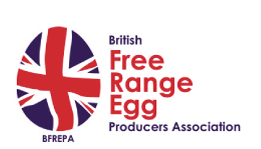May ‘19 futures ended the week at £162.50/T up from recent lows of £157/T, whilst the November futures ended closer to £148.50/T although traded volumes extremely low in the last week.
Sellers of old crop are still relatively hard to find. The market waits to find out if they are holding out for a better price at the end of the season or if we will be relying on the predicted positive influence of the new crop to fill in the gap. New crop has maintained its large price differential to old crop. The May UK wheat features continue to follow the French Matif, although generally trading sideways over the last month has been replaced by a weaker tone of late.
As Brexit deadlines draw ever nearer, so currency remains a key volatility driver. Despite currency value having little overall bearing on the domestic wheat futures it can be the only real difference connecting one day’s trading value and the next. A steady decline in the price over the month was replaced by a few volatile days last week as Brexit votes focused everybody’s attention. Currency strengthened to its highest levels in a belief that a no deal Brexit is off the cards increasing positivity. Some security was also taken for the future when the UK government announced it expects zero import tariffs will be imposed on wheat, maize, oilseeds and barley.
Black sea exports have recently increased to Asia as the prices offered for Russia and the Ukrainian wheat are at some of the lowest seen. Russia expectations for its next grain harvest will reach 120 Mln T, of which 75 Mln T will be wheat remain. This has dealt another blow to demands for US shipments that had been predicted to pick up these sales to help recover the difficult year of extremely low exports. Negotiations between China and the US remain the main focus. However, current weather worries in the US and the negative impact for both winter and spring crops are encouraging a firmer US grain market. All this could change with the imminent release for another USDA report.
The soya market remains little changed with no real developments in the long standing issues of the season; the out of date crop data and the seemingly endless trade dispute between China and the US remain. Despite some positive comments on negotiations, the severity of China’s loss in pig numbers due to African swine fever along with its recent purchases of US pork bring yet more uncertainty to its needs for commodities currently and therefore its need to sign a trade deal with any urgency. Both soya beans and soya meal firmed on the rumour that feed use will move away from maize, causing the trade to change tack and could provide some protection to the soya price.
Winter flooding in the US is adding to the possibility that there could be delays and damage to growing crops, meaning we may see some farmers move to planting beans despite the large US carry into the new season and continued low export volumes this season. The funds, who hold the largest positions of our commodities have been relatively inactive as they await the release of key data.
Hens are usually painted as defenceless creatures at the mercy of the wise old fox, but this time the tables were turned. Hens kept at a French school successfully defended themselves against a fox attack. The head of the farming course at Gros-Chene secondary school in Brittany discovered the body of the hapless intruder covered in blows from the beaks of the 6,000 free range hens kept on the five acre site. (anyone now calculating the external stocking density?)
Pupils had previously seen the hens chase away a fox in the previous week but this young animal clearly had more than it expected when it pushed open a flap into the run and became trapped with the mob of angry ladies not afraid to work together to confront their attacked and fight together for their live.
There are two morals to this story that match perfectly with our own. Together as a team we are stronger and do not under estimate the power of the humble laying hen.
Brought to you by Melanie Blake and Martin Humphrey.





















